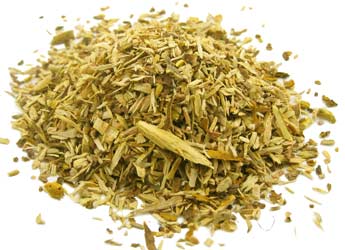- Oregon grape is a plant. The root and root-like stem (rhizome) are used to make medicine.
Contents
Uses
- Oregon grape is used for stomach ulcers, gastroesophageal reflux disease (GERD), stomach upset, as a bitter tonic, to treat infections, and to cleanse the bowels.
- Oregon grape is applied to the skin for a skin disorder called psoriasis and as a disinfectant.
Benefits
- The chemicals in Oregon grape might help fight bacterial and fungal infections. Oregon grape may also slow the overproduction of skin cells in diseases such as psoriasis.
Cautions
- Oregon grape cream is POSSIBLY SAFE for most people when applied directly to the skin. It can cause some side effects such as itching, burning, irritation, and allergic reactions.
- Pregnancy and breast-feeding: ‘It’s LIKELY UNSAFE to use Oregon grape if you are pregnant. One of the chemicals in Oregon grape, berberine, may cross the placenta and might cause harm to the fetus. Brain damage (kernicterus) has been reported in newborn infants exposed to berberine. Berberine can also be transferred to the infant through breast milk. It’s also LIKELY UNSAFE to use Oregon grape if you are breast-feeding due to the berberine in Oregon grape.
- Children: It’s LIKELY UNSAFE to give Oregon grape to children, especially newborns. The berberine in Oregon grape can cause brain damage (kernicterus) in newborns, particularly premature newborns who have jaundice. Jaundice is a condition in which there is yellowing of the eyes and skin caused by bile pigments in the blood. It can happen in newborns who have a different blood type than their mother.
Interactions
Moderate Interaction Be cautious with this combination:
- (Neoral, Sandimmune) interacts with OREGON GRAPE: The body breaks down cyclosporine (Neoral, Sandimmune) to get rid of it. Oregon grape might decrease how fast the body breaks down cyclosporine (Neoral, Sandimmune). This might cause there to be too much cyclosporine (Neoral, Sandimmune) in the body and potentially cause side effects.
- Medications changed by the liver (Cytochrome P450 3A4 (CYP3A4) substrates) interacts with OREGON GRAPE: Oregon grape might decrease how quickly the liver breaks down some medications. Taking Oregon grape along with some medications that are broken down by the liver can increase the effects and side effects of some medications. Before taking Oregon grape, talk to your healthcare provider if you are taking any medications that are changed by the liver.
Some medications changed by the liver include cyclosporine (Neoral, Sandimmune), lovastatin (Mevacor), clarithromycin (Biaxin), indinavir (Crixivan), sildenafil (Viagra), triazolam (Halcion), and many others.
Other Names
Barberry, Berberis aquifolium, Berberis nervosa, Berberis repens, Berberis sonnei, Blue Barberry, Creeping Barberry, Holly Barberry, Holly-Leaved Berberis, Holly Mahonia, Mahonia, Mahonia aquifolium, Mahonia diversifolia, Mahonia Faux Houx, Mahonia à Feuilles de Houx, Mahonia nervosa, Mahonia repens, Mahonie, Mountain-Grape, Oregon Barberry, Oregon-Grape, Oregon Grape-Holly, Scraperoot, Trailing Mahonia, Uva de Oregon, Vigne de l’Oregon, Water-Holly.
References
Source: WebMD, “Oregon Grape”, www.webmd.com/vitamins-supplements/


